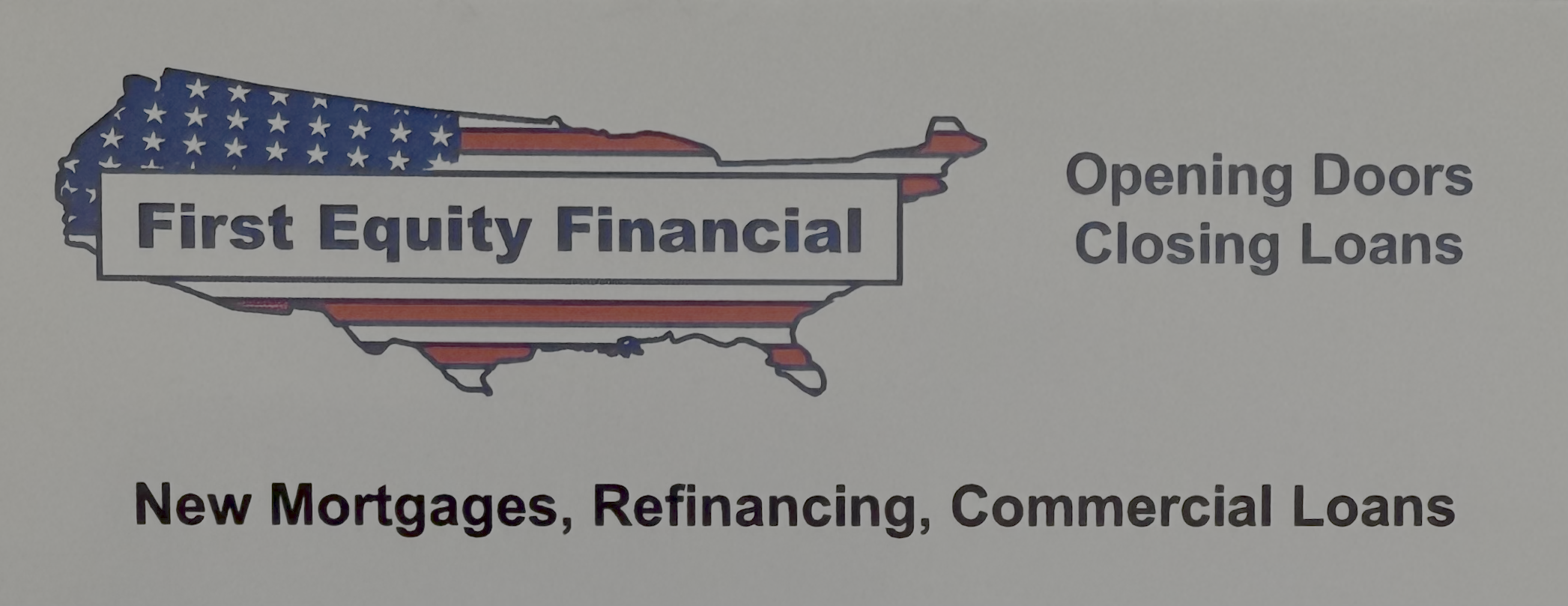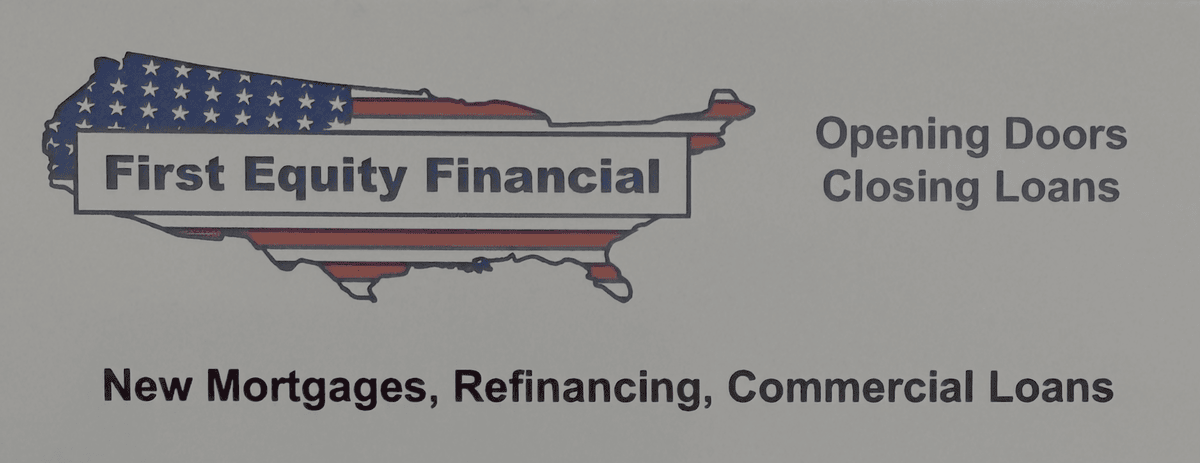We’re Your Local Lender!

See How We Can Help You!


↑ ↑
Don’t we deserve this or this in our golden years?
Enjoy a better retirement with tax free funds.
Understanding Mortgage and Loan Services: Your Path to Financial Clarity
We’re here to provide clear, expert insights into reverse mortgages, HECMs, and more—helping you make informed decisions with confidence. Whether you’re exploring the possibility of a reverse mortgage or trying to understand the ins and outs of Home Equity Conversion Mortgages (HECMs), we’ve gathered the essential information to help you navigate these important financial decisions. Below, you’ll find answers to common questions, debunked misconceptions, and expert explanations about the mortgage options that may be right for you.
What exactly is a “reverse mortgage”?
“Using a reverse mortgage to tap home equity is one of the most powerful options available to retirees today.”
Insured by the Federal Housing Administration (FHA), the Home Equity Conversion Mortgage (HECM)—also known as a “reverse mortgage”—allows homeowners age 62 or older to access a portion of their home’s equity in the form of a loan. Reverse mortgage funds are income tax-free1 and monthly mortgage payments are not required, so long as you continue to meet the loan terms, including:
- Living in the home as your primary residence.
- Continuing to pay required property taxes and home insurance.
- Maintaining the home according to FHA requirements.
What are the benefits and uses of a reverse mortgage?
From eliminating your monthly mortgage payment4 to setting aside money for unexpected expenses, a reverse mortgage can help provide financial flexibility and relieve many of the financial pressures you face in retirement. A HECM can allow you to:
- Pay off an existing mortgage, monthly bills, or healthcare expenses to increase cash flow.
- Make needed home repairs or modifications to more comfortably “age in place.”
- Replace taxable withdrawals from 401(k) or other retirement plans with income tax-free1 reverse mortgage proceeds.
- Establish a line of credit5 for emergencies or occasional expenses.
- Help a child or grandchild with major expenses, like a down payment on a home or college tuition.
What amount can you receive from a reverse mortgage?
The amount of money that you can receive from a HECM depends on a number of factors, such as your age, the type of product you select, current interest rates, and the appraised value of your home.
How can you receive the funds?
Depending on the specific product you choose, there is a range of options for receiving the proceeds of a reverse mortgage, including:
- A lump sum payment
- A monthly income stream
- A line of credit
- A combination of these methods
SIMILARITIES
| HECM | MORTGAGE / HOME EQUITY LINE OF CREDIT | |
|---|---|---|
| Who has title and “owns” the property? | Borrower | Borrower |
| Is the mortgage secured by the property? | Yes | Yes |
| Who is responsible for taxes, insurance and home maintenance? | Borrower | Borrower |
DIFFERENCES
| Feature | HECM | Mortgage / Home Equity Line of Credit |
|---|---|---|
| Future credit line availability | Guaranteed, increases over time | May be cut or suspended by lender |
| Required monthly mortgage payments | No | Yes |
| Loan balance | Increases | Decreases |
| Foreclosure risk due to nonpayment | Limited to tax and insurance defaults or failure to maintain the property | Defaults on monthly payments, taxes, and insurance |
| Borrowers can be required to repay more than the home is worth at the time of sale | No | Yes |
Call us today at (801)-558-4774
Why consider a reverse mortgage?
Is Inflation Impacting Your Retirement?
Harness Your Home’s Equity
with a Reverse Mortgage
We’re all feeling the impact of rising costs of goods and services – everything from groceries, gas, prescriptions, travel, and entertainment. But how can you fight back against climbing prices? The key to fighting inflation may already be in your pocket!
For many retirees, their home equity is their biggest asset. With a reverse mortgage, you can convert your home’s equity into cash without selling your home or making monthly mortgage payments, as long as you meet your loan terms and obligations, keeping up with your property taxes, insurance, and maintenance costs.
Why consider a reverse mortgage?
- ✓ Eliminate your monthly mortgage payments to increase your cashflow.*
- ✓ Use the extra cash to cover rising expenses and boost your spending power.
- ✓ Help with healthcare or home modification costs to age in place in the home you love.
- ✓ Gain greater financial independence and enjoy your retirement to the fullest.
Want to remain at home?
There’s No Place Like Home
Funding to Age In Place
The goal:
88%
OF U.S. SENIORS SAY IT’S IMPORTANT TO REMAIN IN THEIR HOMES AS THEY AGE
ONLY 10%
OF U.S. SENIORS REPORT FEELING COMFORTABLE WITH THEIR FINANCES
MOST SENIORS COULD SAFELY TAKE ONLY
$5,120/yr.
FROM INVESTMENTS TO SUPPLEMENT INCOME
60%
FEEL THEY COULD HAVE DONE MORE RETIREMENT PLANNING
Want to remain at home? See how your home equity can help you do just that.
What is a reverse mortgage?
A Home Equity Conversion Mortgage (HECM), also known as a reverse mortgage, is a loan insured by the Federal Housing Administration (FHA) for homeowners age 62+ that lets you:
- ✓ Access a portion of your home equity
- ✓ Use the income tax-free cash proceeds as you wish
- ✓ Eliminate monthly mortgage payments
You retain ownership of your home — all you have to do is keep current with property taxes, homeowners insurance, and home maintenance as you do now.
What is a HECM?
Want to cash in on your home equity?
Before you get a HELOC, consider the advantages of a HECM.
A Home Equity Line of Credit (HELOC) is the first—and sometimes only—option for accessing home equity people think of. But if you’re a homeowner aged 62 or older, there’s another way to tap into your equity that offers attractive advantages and flexible features.
In fact, a Home Equity Conversion Mortgage (HECM), commonly known as a reverse mortgage, was specifically designed to help seniors improve their cash flow and live more comfortably. Here are some of the advantages of a HECM versus a HELOC:
Monthly mortgage payments? Optional.
Unlike a HELOC, if you keep current with property taxes, homeowners insurance, and maintenance, you don’t have to make monthly mortgage payments on a HECM.
No freezing of funds allowed.
A HELOC can be reduced or frozen at any time. With a HECM, the lender can’t reduce or freeze the amount of money available to you.
Get your cash, your way.
A HELOC only offers a line of credit. With a HECM, you can choose to take the proceeds as a lump sum, a line of credit as monthly disbursements, or in any combination of these options.
A line of credit that grows.
If you choose the line of credit option, the amount available to you grows over time. A HELOC does not.
The answers you need.
Third-party reverse mortgage counseling is required by HUD to help ensure that you understand your options and responsibilities, and all of your questions are answered. It’s a safeguard built into the program that a HELOC doesn’t provide.
Protection for you and your heirs.
A HECM is a “non-recourse” loan. That means you or your heirs can never owe the lender more than the home is worth at the time of its sale. A HELOC doesn’t provide this protection.
Qualifying factors for a HECM include being a homeowner aged 62 or older, using the home as your primary residence, and being able to keep current with taxes, insurance, and maintenance. Qualifying for a HELOC is primarily based on credit score and income—not ideal for retirees on a fixed income.
AT A GLANCE: facts you need to know
| FEATURE | HECM | HELOC |
|---|---|---|
| Allows access to home equity cash? | Yes | Yes |
| Allows you to retain title and home ownership? | Yes | Yes |
| Requires monthly mortgage payments? | No | Yes |
| Can be reduced or frozen by the lender? | No | Yes |
| Line of credit grows? | Yes | No |
| Provides independent, HUD-approved counseling? | Yes | No |
| Insured by the Federal Housing Administration? | Yes | No |
| Annual fee may be required to keep the loan open? | No | Yes |
| Fee charged for early repayment? | No | Yes |
HECM: a smart financial strategy, now and in the future.
Even if you don’t need money now, some financial experts advise that putting a HECM line of credit in place, to draw from as needs arise, may give you a better chance of weathering financial storms and unexpected expenses down the road.
With a HECM there’s no hard deadline for repayment. As long as you meet the loan terms, it only comes due when a maturity event occurs—such as when the last borrower permanently leaves the home. HELOC loans typically come due after 10 years; but often, making minimum payments doesn’t pay off the loan.
In that case, borrowers can be hit with a “balloon payment” requiring them to come up with a large lump sum to cover the remaining debt—a daunting financial prospect for many seniors.
Plus, you can increase your cash flow. With a HECM, proceeds are first used to pay off any existing mortgage balance, and you get the rest. Since no monthly payments are required on the HECM, that’s a significant amount of cash you could save and redirect for other needs.
Who can get a HECM for Purchase? Is it right for you?
Who can get a HECM for Purchase?
The federally-insured HECM for Purchase program was created in 2009, designed to streamline home-buying transactions for older Americans who want to take advantage of a traditional HECM reverse mortgage.
It combines two transactions—buying a new home and financing part of the purchase with a reverse mortgage—into one. Typically, a down payment of 60% to 65% of the purchase price (depending on your age) is combined with HECM for Purchase funds to complete the transaction.
What are the program requirements?
- You must be age 62 or older.
- The home you’re purchasing must be your new primary residence.
- Eligible properties include: single-family homes, FHA-approved condominiums or single-unit approvals, townhouses or Planned Unit Developments (PUDs), and manufactured homes meeting HUD guidelines.
- Your down payment cannot be borrowed funds—it must come from savings, the sale of your current house, or a gift from a family member.
- Loan counseling by an independent, FHA-approved counselor is required to ensure that you fully understand the reverse mortgage process, the program’s details, and the individual terms of your loan.
- You’ll need to prove adequate sources of income to assure the lender that you’ll be able to meet your ongoing loan obligations.
- Interested Party Contributions are allowed up to 6% of the sales price.
Is a HECM for Purchase right for you?
For many older adults, buying the home they really want or need may seem impractical or out of reach. Fortunately, the HECM for Purchase option was designed with more than one type of consumer in mind. It can help you retire in a home that better suits your changing needs.
Give yourself more options and improve your financial flexibility.
Keep more cash for the things you need.
A HECM for Purchase allows you to buy a new home without making monthly mortgage payments – so you can keep significantly more cash and assets in reserve to help cover retirement expenses and improve your cash flow.
Supersize your purchasing power.
By combining your down payment with reverse mortgage loan proceeds, you can more comfortably afford a home with more amenities or a more desirable location.
Get the home you want without settling for less.
Buying a new home for retirement doesn’t have to mean downsizing your goals. A HECM for Purchase can help you right-size to a home that fits your current and future plans – whether that’s being closer to family, clearing out the clutter, or getting a home with upgraded features.
HECM – How has HECM helped others like me?
The HECM for Purchase Program offers you flexible financial solutions.
Case 1: Meet Cynthia, age 71.
Due to a recent illness, she now needs to use a wheelchair, making her current two-story house unsuitable. She’d like to purchase a new ranch-style home, but with her limited savings and long-term healthcare needs, she can’t afford a monthly mortgage payment.
Her solution:
With a HECM for Purchase, Cynthia can buy a more practical house while only using a portion of the cash she received from the sale of her former home. This lets her add more funds to her savings and be better prepared for future healthcare costs.
Case 2: Meet Carole and David, both age 64.
Since their kids left home, the couple has considered moving out of their large, four-bedroom house to a smaller home in a planned community. But they don’t want the burden of a monthly mortgage payment, or to pay all cash up front.
Their solution:
Use just a portion of the cash from the sale of their former house, which sold for $625,000, and use the proceeds from a HECM for Purchase to buy their new $450,000 home. This allows them to preserve more than $350,000 for savings and investments, eliminate monthly mortgage payments, and still have the ability to get the home they really want.
| All Cash | Traditional Mortgage | HECM for Purchase | |
|---|---|---|---|
| Down Payment | $450,000 | $135,000 (30% down) | $308,410 |
| Fixed Interest Rate | N/A | 6.7% (30 yr.) | 6.81% |
| Monthly Payment (P&I) | N/A | $2,033 | Not required |
| Monthly HOA Fees | $300 | $300 | $300 |
| Monthly Taxes and Insurance | $650 | $650 | $650 |
| Total Monthly Payments | $950 | $2,983 | $950 |
Common Misconceptions of Reverse Mortgages
Myth vs Fact
MYTH #1:
The bank or lender takes ownership of my home.
FACT:
With a reverse mortgage, you or your estate continue to retain ownership of your home’s title. The lender’s interest is limited to the outstanding loan balance as a lien on the property.
MYTH #3:
My heirs will be responsible for repaying the loan.
FACT:
Since reverse mortgages are non-recourse loans, the lender can only derive repayment of the loan from the proceeds from the sale of the property. Even if the value of the home is dramatically reduced, you or your heirs will never owe more than the value of the home at the time of its sale. And when the loan becomes due, your heirs have several options on what they can choose to do with the home. They can repay the loan and keep the home for themselves, sell the home and keep any remaining funds, or do nothing with the home and deed it to the lender.
MYTH #5:
Reverse mortgage lenders just want to sell my house.
FACT:
You can stay in your house for as long as you want, as long as you meet the terms of the loan. Should you decide to sell your home or relocate, the loan would then become due and payable.
MYTH #7:
I cannot sell my home if I get a reverse mortgage.
FACT:
A reverse mortgage is like any other loan. If you sell your home, the reverse mortgage will be paid off at closing. There are no prepayment penalties for paying off or selling the home in advance.
MYTH #9:
Reverse mortgages are expensive.
FACT:
Reverse mortgage loan origination costs and interest rates are comparable to those of traditional mortgages. There are FHA insurance costs that some traditional mortgages do not require, but it’s a relatively small cost. Plus, lender closing costs and fees can typically be financed into the loan, so there is little required from you out of pocket.
MYTH #2:
A reverse mortgage requires me to make monthly mortgage payments.
FACT:
There are no monthly payments required on a reverse mortgage – you have the freedom and flexibility to pay as little or as much as you want, as often as you’d like. However, as a borrower, you are responsible for keeping current with real estate taxes, homeowners insurance, and property maintenance.
MYTH #4:
To qualify for a reverse mortgage, my home must be debt-free and paid off “free and clear.”
FACT:
You can have a mortgage or other debt on your home’s title as long as you have adequate equity in the property. If there’s a mortgage on your home, the money from the reverse mortgage is first used to pay off that loan.
MYTH #6:
If I get a reverse mortgage, I will be left with nothing to leave to my heirs.
FACT:
Since you’d be borrowing money against the value of your home, and accruing loan interest and mortgage insurance payments, the loan amount would increase over time. That said, the home may appreciate in value – so it’s possible that there may be money left over from the sale of the house that would go to your heirs, once the loan is paid.
MYTH #8:
A reverse mortgage should be used as a last resort.
FACT:
A reverse mortgage is a powerful financial tool that can be an important part of your overall financial plan. From paying off an existing mortgage to delaying Social Security, or even creating an emergency line of credit, it’s a flexible product designed to give you options. In fact, many financial planners have begun to discuss reverse mortgages with clients who need additional sources of retirement cash flow.
MYTH #10:
If my lender or servicer changes, my loan terms are subject to change.
FACT:
The terms of your loan are defined at closing and by law, cannot be changed, as long as the deed remains in force.
Different Types of Financing
Explore Financing Options
Learn about various mortgage financing options tailored to your needs. Click any of the blue titles below to explore each in detail.
A traditional loan option with competitive rates for qualified buyers.
Government-backed loans with lower down payment requirements.
Zero down payment loans for rural and suburban homebuyers.
Exclusive mortgage benefits for veterans and active military members.
For high-value homes that exceed conventional loan limits.
A flexible line of credit using your home’s equity.
Special financing for condos that don’t meet standard requirements.
Short-term financing to bridge the gap between home transactions.
Funding for building your dream home from the ground up.
Short-term loans for purchasing and renovating investment properties.
Meet First Equity Financial: 25 Years of Mortgage Expertise
Learn how First Equity Financial has been helping Utah residents for over 25 years, offering expert guidance on all types of mortgage loans and financing solutions.
Top Uses of Reverse Mortgage Proceeds
Discover the most common ways homeowners use reverse mortgage funds to improve their financial well-being and secure their future.
I can help you unlock the power of your home

Gene Francisconi
Owner/First Equity Financial
NMLS#: 104826
Call: 801-558-4774
Email: [email protected]
Visit: www.firstequityfin.com
